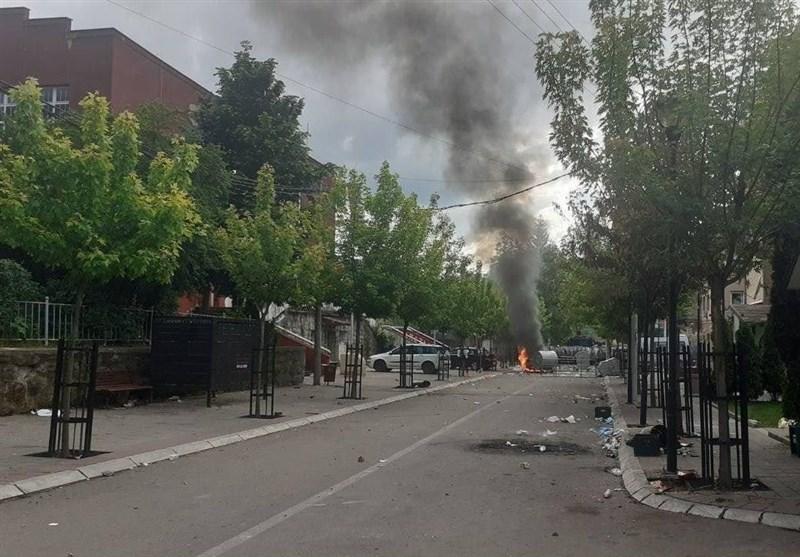In an interview with the website of the Strategic Council on Foreign Relations, Seyed Maisam Mirhadi referred to the escalation of tensions between Kosovo and Serbia and its roots and noted: The recent tension in the north of Kosovo and on the border with Serbia happened when the elected Albanians of the previous elections with the support of the police and security forces intended to settle in the municipal building and start their work officially. This is despite the fact that the Serbs inhabit those areas, and basically, their residents do not recognize the central government and therefore had boycotted the past elections.
He added: This issue led to the emergence of a conflict between the Serbs of this area and the police and security forces, as a result of which the NATO forces known as KFOR, which are stationed in that area, intervened.
The expert on Balkan affairs continued: Even though a major part of the roots of the tension in that region should be found in the historical, ethnic, and cultural issues of its inhabitants, another important aspect of such conflicts, which appear from time to time with intensity and weakness, has its root in the so-called order that the West imposed on the Western Balkans after the collapse of Yugoslavia.
Mirhadi explained: In some ways, the order in the Balkans can be compared to the order form in the Middle East after World War I, in which we witnessed the emergence of some countries with unique geopolitics, unbalanced ethnic and religious pluralism, heterogeneous and conflicting, and without the primary components of the nation-state.
Referring to the role of foreign interventions and interests of countries in the recent tensions, he said: Although many players are playing a role in the Western Balkans and this role-playing has had ups and downs at different times, it seems that its basis is an intellectual and civilizational confrontation of the East and the West.
The analyst of Balkan affairs added: Yugoslavia, under the leadership of General “Tito,” was trying to safely pass through the turbulent sea of this confrontation by adopting a non-committal approach. However, after the collapse of Yugoslavia, and independence of its republics, and the formation of new countries in the geopolitics of this region, we witnessed the independent alignment of each of them towards the East and the West. The emergence of new regional and international players, on the one hand, fueled the intensification of faults in the region and, on the other hand, turned the Balkans into an arena for recruiting on the path of the new order, to such an extent that each of those powers, trying to gain their political, security, economic and religious advantage, expanded their relations and established effective exchange visits in the region.
While explaining the positions of Western and European countries regarding the recent tensions, Mirhadi stated that such tensions could not be considered in line with the interests of those countries and noted: It seems that the West is determined to use all its power to concentrate on the issue of the war between Russia and Ukraine and currently has no interest in opening a new case, especially with military-security nature in Europe. Contrary to what has always happened in the region, which was referred to as “the possibility of Russia using the capacity of Serbia and the Balkan Serbs to create a security problem in Europe,” regarding the recent tensions, it seems that the Albanians of Kosovo origin want to punish Pristina (the capital of Kosovo) by Europe.
Concerning the causes of Russia’s warnings and sensitivities in this regard, he said: It seems that Russia, in addition to cultural ties it has with Serbia, in the crisis it is facing with the West regarding the Ukraine issue, sees Serbia as a supporting player in the heart of a united anti-Russia Europe that can be used as an outlet for political and economic breathing.
According to the expert on Balkan affairs, the anti-imperialist spirit of the Serbian people and the bitter experience they had during the bombing of Belgrade by NATO will definitely help the identification between the two, a factor that can be considered important for Moscow in the field of recruiting in the public opinion. It should also not be forgotten that any crisis in this region, whether Russia plays a role in it or not, can completely change the equation of the war between Russia and Ukraine by opening a new front for Europe and the US.
Mirhadi stated that the tensions in the Balkan region would not disappear due to the artificial structure of peace in it. However, there are components that can intensify them or reduce their intensity and added: In the current situation, Europe is not in a position to allow conflicts in Kosovo to continue and will try to calm the situation by applying different strategies. Such a situation supports Belgrade so that it can ask for concessions that will be effective in the future Pristina-Belgrade negotiations to help control the crisis and reduce tension.
He said: The recent tensions showed that the nation-state building process in that country has a long way to go. In case of tension in one of the Western Balkans countries, the neighboring countries will enter into conflicts, whether or not Bosnia and Herzegovina has the highest capacity for such an issue.
Mirhadi added: On the one hand, this may lead to the acceleration of the process of those countries joining the European Union and NATO, but on the other hand, despite the declared policies, it is clear that European leaders are hesitant about making decisions regarding the fate of the Balkan countries that are not members of the European Union.










0 Comments